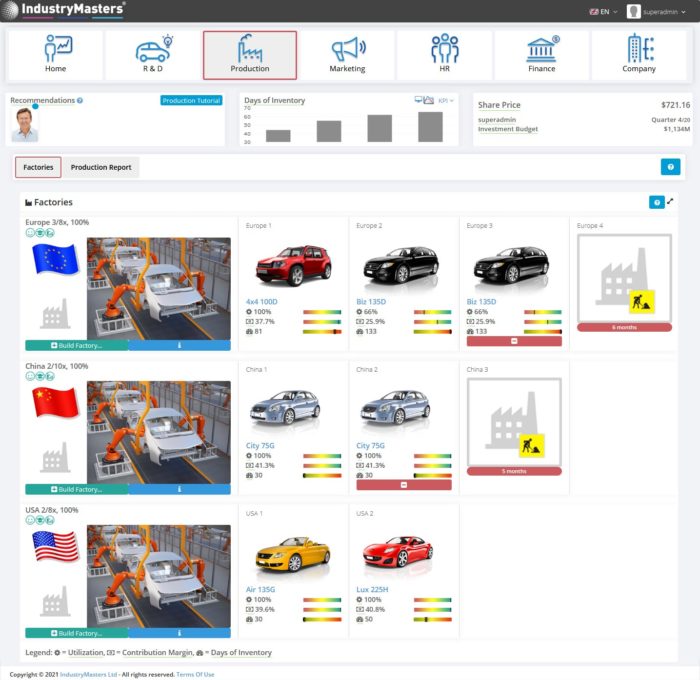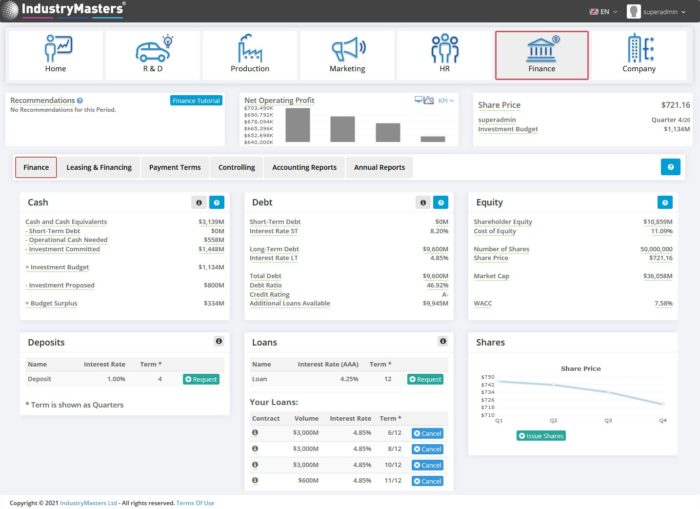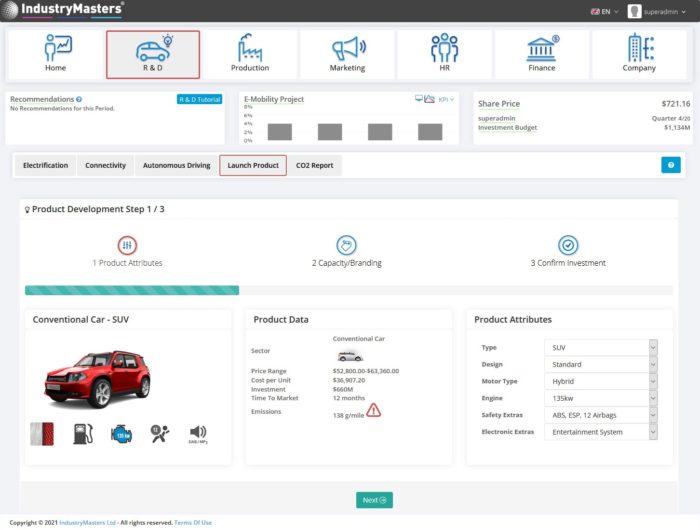Change Management Simulation
Change initiatives fall short when employees are slow to adopt new directions. Decision making can become habit and habits are difficult to change. Our proven Change Management Simulation offers hands-on practice within an immersive, no-risk environment. Participants learn how to manage change and lead their teams through the change process. The ability to witness immediate outcomes to decisions makes the learning memorable, applicable and fun.
Our off-the-shelf Change Management Simulation provides an engaging learning experience and is ready to deploy with minimal effort. All IndustryMasters business simulations are available as competitive multi-player real-time events and as self-guided, single-player versions.
The Change Management Simulation can be tailored quickly to adjust the storyline, KPIs, critical decisions and relevant lessons to your change management training requirements. When only a custom solution will do, we have the experience and technology to build completely unique change management simulations. We work with you to ensure we have exactly the decisions and outcomes your learners need to understand.
Change management is the art to prepare and support employees within companies to make decisions that drive organizational change to achieve sustainable business results. The main drivers of change are the evolution of technology, customer demand changes, competitive pressure and regulatory requirements.

Technology Adoption: E-Cars
The primary objective of the Change Management Simulation is to manage the transition from a traditional car manufacturer to an electric cars only manufacturer.
Participants determine market preferences, production costs and an optimal strategy for maximizing efficiency, market share, and financial performance. Varying country regulations, global emissions concerns and the speed of news and recent scandals are only some of the macro trends impacting your success. Change management training made fun!
Themes: Change, Strategy, New Product Introduction, Operations Management, Product Life Cycle, Competitive Advantages, HR Management, Recruiting, HR Talent Retention, Inventory Management, Capacity Planning, Finance Management, Issue/Buyback Shares, CO2 Emissions, Sustainability.
KPIs: EBIT Margin, Debt-to-Equity Ratio , FCF, Revenues, E-Mobility Project, CO2 Fleet Emissions, Days of Inventory, Manager Motivation, Revenue per Employee, Sales Volume, Staff Retention, Management Retention, Diversity.
Learning Objectives
- Change Management across all departments: R&D, Production, Marketing, HR and Finance
- Product Management
- Adjusting Sales Price
- Adjusting Marketing Spend
- Management of the Company’s Funding
- Issuing Shares to Increase Equity
- Taking Loans to Increase Funds
- Remain in Compliance with CO2 Emissions Regulations
- Investments for Transformation to E-Cars
- Connectivity Technology
- Autonomous Driving
- Fleet Electrification
- Battery Technology
- Launching New Models with Advanced Features
- Phasing Out Fossil Fuel-Based Models
- Growing Market Share and Improving the Bottom Line
- Understanding the Importance of Talent Management and Retention
- Maximizing Market Capitalization




